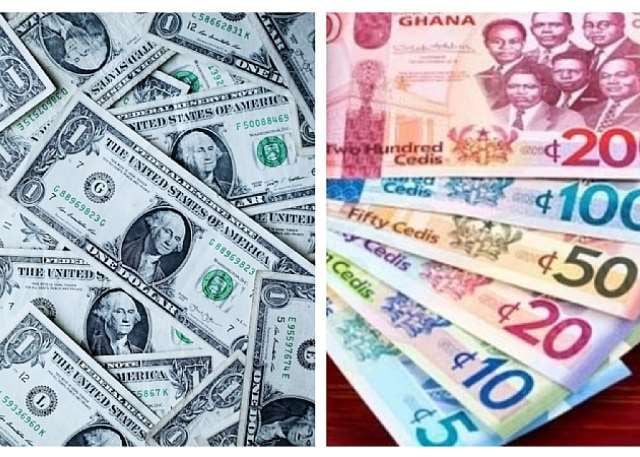The Ghanaian cedi faced continued depreciation against major international currencies on September 1, 2025, reflecting ongoing economic pressures and market dynamics. Across various exchange platforms, the cedi registered weaker performance, raising concerns about the potential impact on import costs, inflation, and overall economic stability. The depreciation was particularly evident against the US dollar, a key currency for international trade and transactions. This downward trend highlights the challenges faced by the Ghanaian economy in maintaining currency stability and underscores the need for effective policy interventions.
Analyzing the specific exchange rates, the cedi traded at an average buying rate of GHS11.29 and a selling rate of GHS11.90 against the US dollar, according to Cedirates.com. Forex bureaus, which cater to smaller transactions and individual customers, quoted even weaker rates, with buying and selling rates of GHS12.25 and GHS12.60 respectively. This disparity between the interbank market rate and the forex bureau rate is indicative of market segmentation and the influence of supply and demand dynamics within the retail foreign exchange market. The Bank of Ghana’s interbank market, which facilitates larger transactions between banks, recorded a slightly stronger cedi performance with buying and selling rates of GHS11.39 and GHS11.41.
The depreciation of the cedi extended beyond the US dollar, impacting its value against other major currencies like the British pound and the euro. Against the pound, the average forex bureau rate stood at GHS15.12 for buying and GHS16.02 for selling. The Bank of Ghana’s interbank rate for the pound was GHS15.41. Similarly, the euro traded at GHS13.06 for buying and GHS13.88 for selling at forex bureaus, while the interbank rate was GHS13.34. These trends highlight the broader weakness of the cedi in the international currency market and suggest common underlying factors influencing its performance.
Money transfer operators, such as LemFi and Afriex, provided slightly varying rates for remittances from the US and UK to Ghana. For US dollar remittances, LemFi offered a rate of GHS11.45, while Afriex offered GHS11.35. For British pound remittances, LemFi quoted GHS15.49 and Afriex offered GHS15.84. Euro remittances saw LemFi offer GHS13.37 and Afriex quote GHS13.61. These variations reflect competition within the remittance market and potentially different cost structures and business models adopted by these operators. These rates, however, generally remained more competitive than those available at forex bureaus.
The exchange rate for digital subscription payments using Visa and Mastercard for services like Netflix, Spotify, and Apple Music was GHS12.57. This standardized rate for digital subscriptions likely reflects agreements between payment processors and service providers, possibly designed to simplify transactions and provide a consistent cost basis for users. This rate sits closer to the forex bureau rates, indicating that these transactions may be subject to different exchange rate mechanisms than those offered by remittance services.
The overall depreciation of the cedi raises concerns about the potential consequences for the Ghanaian economy. A weaker currency can lead to increased import costs, making imported goods more expensive for consumers and businesses. This can fuel inflationary pressures, impacting the cost of living and potentially affecting economic growth. Furthermore, a depreciating currency can erode investor confidence and make it more expensive for Ghana to service its external debts denominated in foreign currencies. Addressing the underlying factors contributing to cedi depreciation, such as trade imbalances, fiscal deficits, and speculative pressures, is crucial for ensuring macroeconomic stability and sustainable economic development. The government and the Bank of Ghana will need to implement appropriate policy measures, potentially including monetary tightening, fiscal consolidation, and structural reforms, to address these challenges and restore confidence in the cedi.














